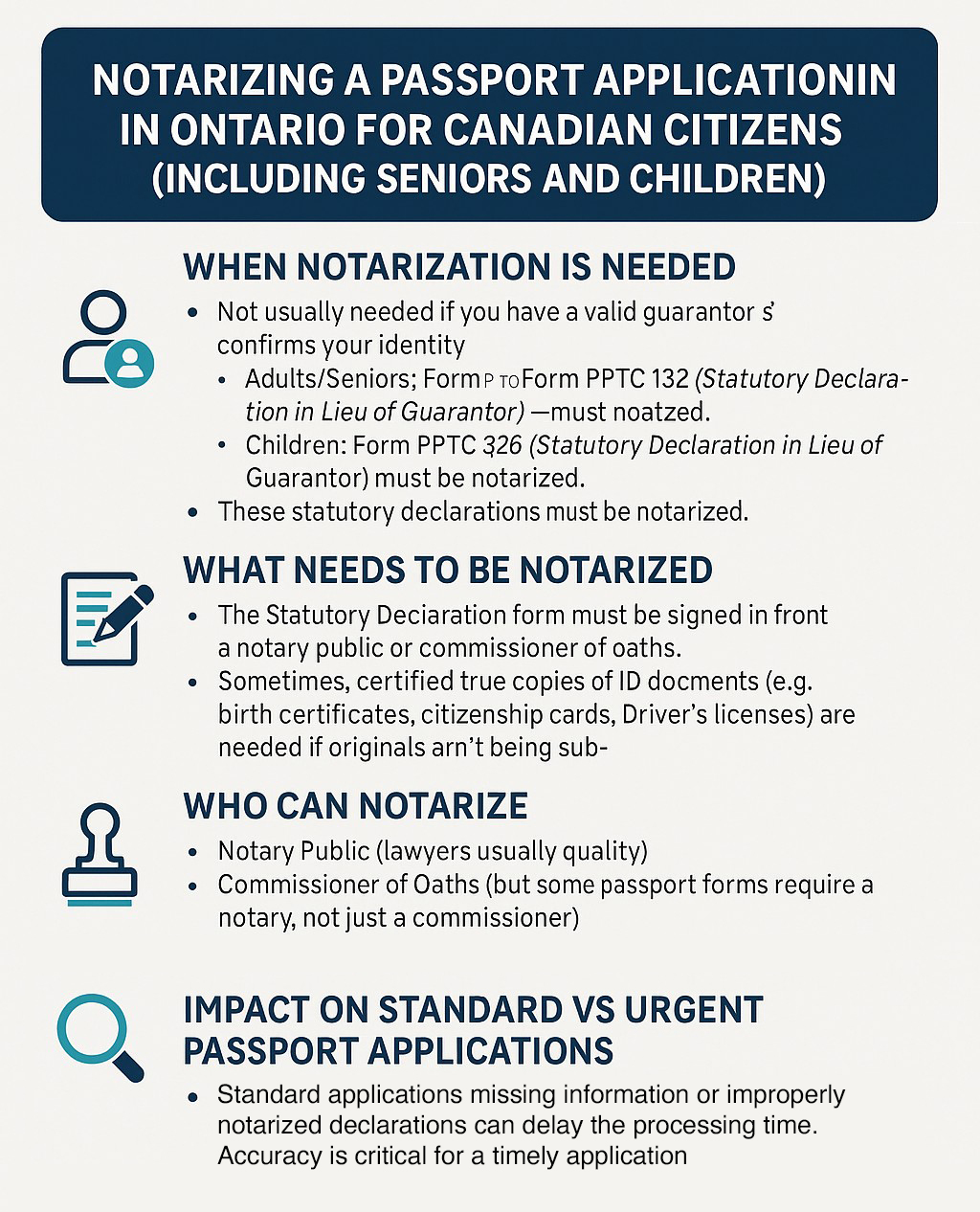Notarizing a Passport Application in Ontario for Canadian Citizens (Including Seniors and Children)
When Notarization Is Needed
- Normally, you don't need notarization if you have a valid guarantor who can confirm your identity and sign your application.
- Notarization is needed if you cannot provide a guarantor. You must then submit a "Statutory Declaration in Lieu of Guarantor" (form PPTC 132 for adults/seniors or PPTC 326 for children).
- This statutory declaration must be notarized.
What Needs to Be Notarized
- The statutory declaration form must be signed in front of a notary public or commissioner of oaths.
- In some cases, copies of ID documents (like birth certificates, citizenship cards, driver's licenses) may also need to be certified (notarized) as true copies if originals aren't being submitted.
Who Can Notarize
- In Ontario, notarization can be done by:
- A Notary Public (lawyers often are)
- A Commissioner of Oaths (but some documents explicitly require a notary)
- Some Service Ontario locations offer limited commissioner services, but private notaries are faster for passport purposes.

Impact on Standard vs Urgent Passport Applications
- Standard Applications:
Adding notarization (because you lack a guarantor) doesn't slow processing by itself, but it adds an extra document the passport office must verify. - Urgent Applications:
You must still provide the notarized declaration if you have no guarantor. Missing or incorrectly notarized paperwork could delay urgent processing, so it's critical to get it done correctly.
Practical Tips.
- Time needed:
Notarization usually takes 10 – 15 minutes if your documents are ready. - What to have handy:
Valid government-issued photo ID, the blank statutory declaration form (unsigned), and any supporting documents. - Reminder:
Do NOT sign the statutory declaration before meeting the notary — you must sign it in their presence.
